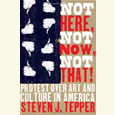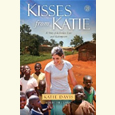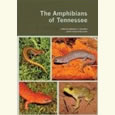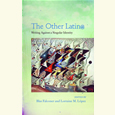The Art of Censorship
October 31, 2011 In Not Here, Not Now, Not That!, Vanderbilt sociology professor Steven J. Tepper challenges any bird’s-eye-view analysis of the so-called “culture war.” Rather than focus on national debates, like those preceding the opening of the controversial Sensation exhibit at the Brooklyn Museum of Art in 1999, Tepper concerns himself with hundreds of smaller, local conflagrations––over flags, nativity scenes, statues, banned books, etc.––that occurred across America during the 1990s. By analyzing data collected from these local skirmishes, Tepper discards contentious progressive or traditionalist labels, arguing that it’s more effective to understand––and debate––the nuanced issues that really matter to a community.




